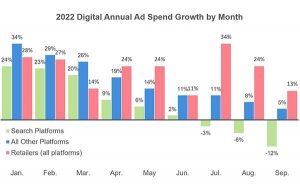In this era of social media mania, making a positive impact with your posts is more desirable than ever. Most of us will have felt the buzz of receiving likes and affirmative comments on our own personal social media content, something many marketers have recognised as a bit of a millennial phenomenon and particularly potent if we’ve been feeling down. Online recognition matters because it makes us feel good about ourselves, boosts our mood and satisfies the modern need for instant validation social media itself has created.
In this context, likes on platforms such as Facebook and Instagram can be seen as kind of ‘currency’, valuable for the thrill and virtual seal of approval they provide. It’s much the same in the world of e-commerce, except that with any luck, the pay-off on your online activity will involve actual sales as well as social currency. Here we look at how online sellers can use their own social media habits and know-how to boost their business’s bottom line.
Think of online shopping platforms like social media profiles
Your product listings on online shopping platforms have much in common with a Facebook or Instagram profile, with the notable exception that they are designed to bring in sales, rather than likes. The same concept of positive endorsement that applies when friends respond to your posts also kicks in when a customer buys one of your products.
By creating your product listings in the same way as you would a social media profile, it’s possible to engineer them to maximize sales. After all, many of today’s shopping platforms have the same optimization tools, tips, and guidance as their social media counterparts. For example, a well-known property rental website features an account set up process remarkably similar to that of a social media profile. New hosts are asked to submit personal information about themselves, good quality images, tags for search optimization and to check other members’ profiles to pick up tips on writing effective descriptive copy about their properties. Keeping the principles of a successful social media profile in mind, and making the small adjustments they recommend over time, can help you build up more sales (or likes), and more customers (or friends).
Maximise engagement
Getting people engaging with your posts on social media and products in your online store are what it’s all about, and customers hitting the ‘buy’ button is the ultimate form of engagement. Think about the broader impact your product listings could have, as it makes sense that if one person likes what you’re doing, others in their network will too. The more engagement your posts or products receive, the more widespread their reach will become.
Respond to buyer feedback
When our social media connections comment on one of our posts or images, it’s customary to acknowledge their interaction, with a like or reply to their comment. You can develop this same practice with comments on your product listings from your customers, using it as an opportunity to thank them for their purchase and ask for further feedback.
Put effort into your product listings
In terms of the response you get to your own social media posts, you’ve probably noticed that you get the biggest and most positive reaction when you post a fantastic image with everyone tagged, a location check-in and a great description of whatever’s going on. On the other hand, your run of the mill posts will probably only garner a few likes from your most stoic connections.
It’s effort that sets the first type of post apart. When social media posts are fully optimized for likes, they attract attention and appreciation from lots of people in your network, many of whom you may rarely hear from. Your product listings can work in the same way; by making them the best they can be (with carefully crafted, optimized descriptions, tags, metadata and professional photography etc), you’re much more likely to entice new customers to your online store and increase your market share.
In these ways and more, the skills you’ve learned from your own social media use can be transferable and highly beneficial when put to use on your business’s online shopping listings. Foreign exchange experts World First can offer more practical business advice for online sellers, including how to push your online sales further through new international markets.
Digital & Social Articles on Business 2 Community(36)








